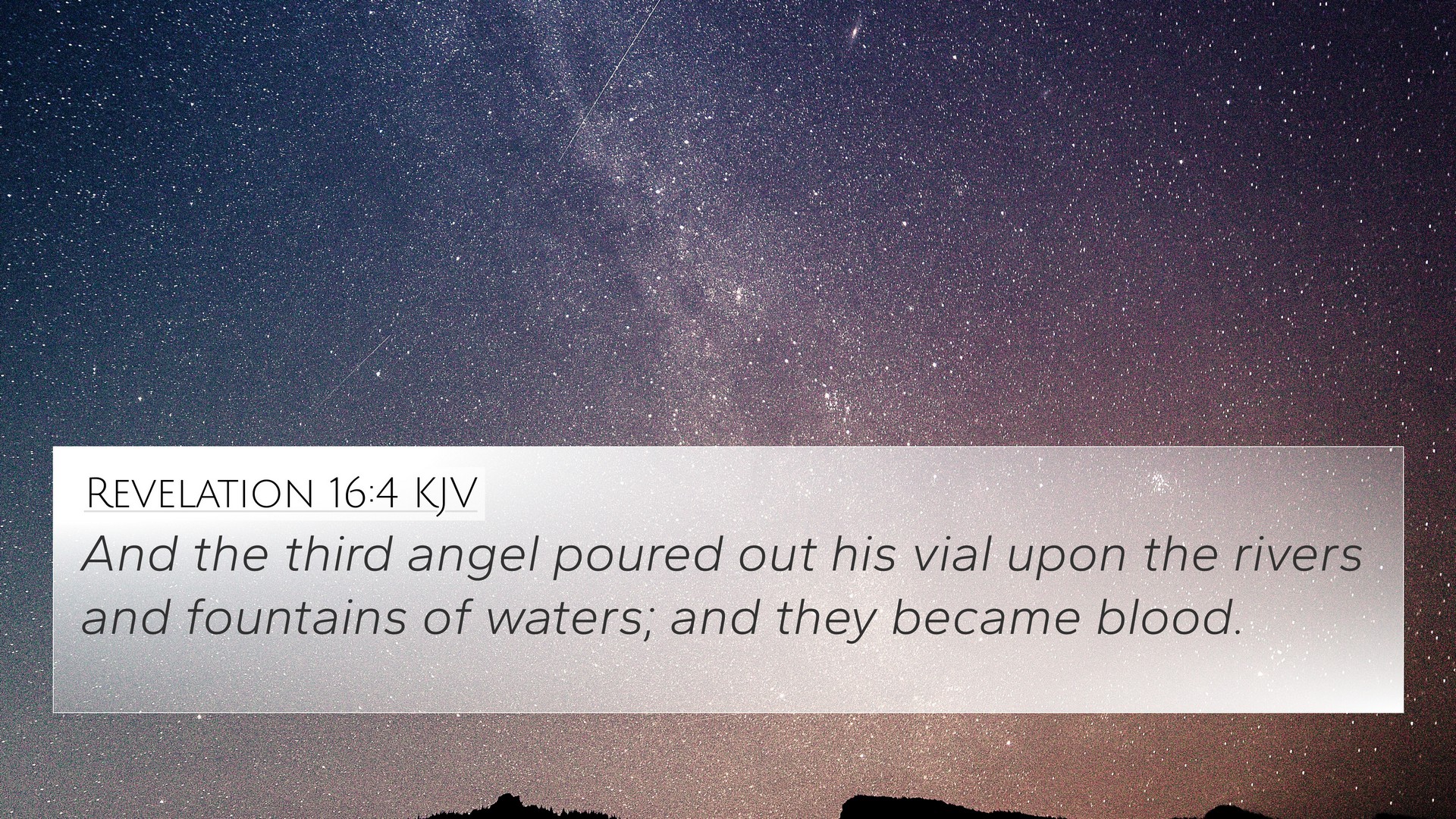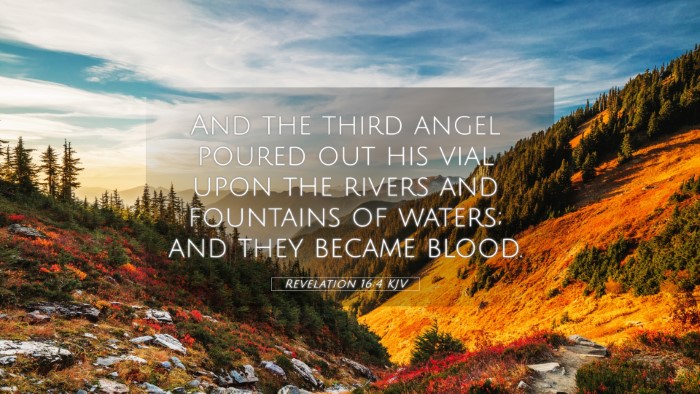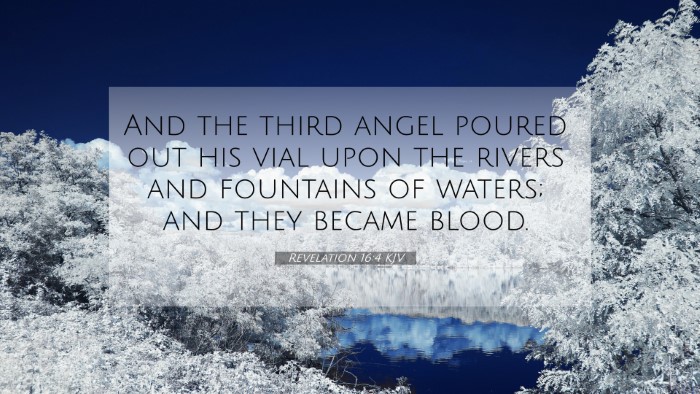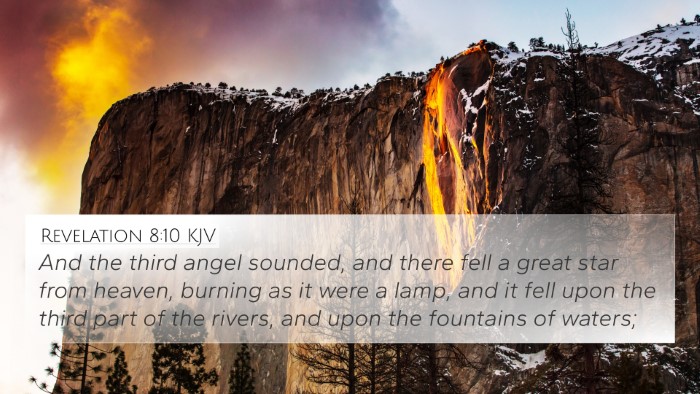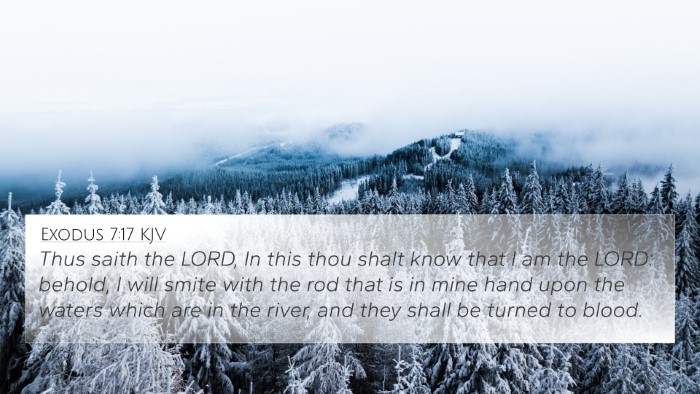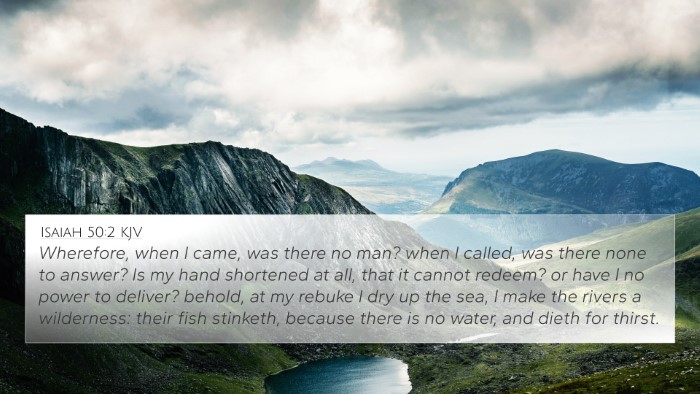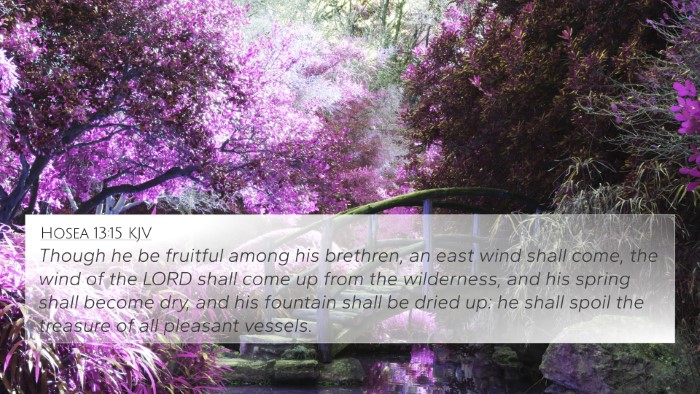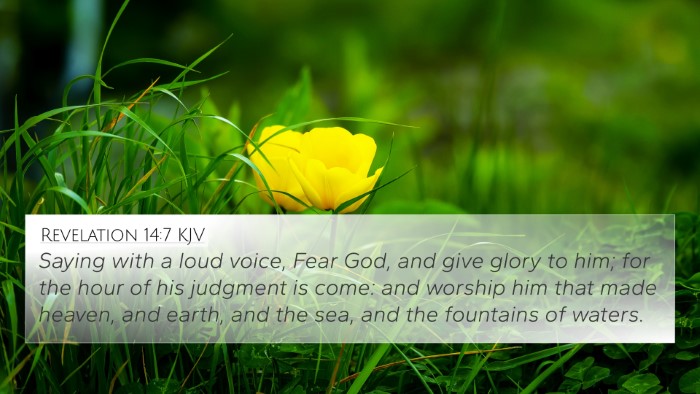Understanding Revelation 16:4
Revelation 16:4 reads:
"And the third angel poured out his vial upon the rivers and fountains of waters; and they became blood."
This striking verse evokes an extensive array of interpretations and connections within the Bible. Below, we explore the meaning of this verse by referencing insightful public domain commentaries from respected theologians Matthew Henry, Albert Barnes, and Adam Clarke. In doing so, we aim to provide a comprehensive understanding while cross-referencing with related Scripture.
Verse Overview and Interpretation
In this section, we highlight key interpretations from various scholars that elaborate on the implications and themes presented in Revelation 16:4:
-
Matthew Henry’s Commentary:
Matthew Henry emphasizes the gravity of judgment depicted in this verse. He notes that the pouring out of the vial represents divine wrath against a sinful world, leading to catastrophic consequences for those who have rebelled against God. The transformation of water into blood symbolizes profound moral and spiritual corruption.
-
Albert Barnes’ Notes:
Barnes interprets this event as a sign of impending judgment upon the ungodly. He discusses how the rivers and fountains, which typically symbolize refreshment and life, becoming blood illustrates the reversal of God's blessings due to humanity's disobedience. This vivid imagery serves as a warning and call to repentance.
-
Adam Clarke’s Commentary:
Clarke highlights the prophetic nature of the event, linking it to the historical judgments seen throughout Scripture. He suggests that this plague reflects God's ultimate judgment on those who have rejected His law, paralleling previous plagues seen in the story of Exodus, emphasizing the continuity of God's justice throughout biblical history.
Thematic Connections and Cross-References
Revelation 16:4 resonates with numerous other biblical passages that deepen our understanding. Below are key verses that relate thematically:
- Exodus 7:17-20: The Plague of Blood in Egypt, where God turned the Nile into blood as a sign against Pharaoh.
- Psalm 78:44: A reflection on God's judgments where waters were turned to blood, a reminder of His power.
- Jeremiah 50:38: A prophecy against Babylon that mentions the land becoming desolate, emphasizing divine judgment.
- Ezekiel 32:6: Imagery of blood being poured out echoes the themes of judgment related to disobedience.
- Matthew 24:29: Jesus speaks of cosmic signs at the end times, correlating darkness and divine intervention.
- 1 Thessalonians 5:3: A warning about sudden destruction when people are saying "peace and safety," reflective of unanticipated judgment.
- Revelation 8:8: Another angel sounds the trumpet causing a third of the sea to become blood, linking the events of divine retribution.
The Significance of Cross-Referencing Biblical Texts
Understanding Revelation 16:4 becomes richer when we consider the connections between Bible verses. Thematic Bible verse connections help illuminate the unity of Scripture and God's consistent message of justice, mercy, and warning. Here are a few tips on how to effectively engage in cross-referencing:
- How to identify connections: Utilize a Bible concordance for locating similar themes across different books, especially focusing on prophetic literature.
- Bible cross-reference guide: Following thematic links assists in understanding the significance of divine judgment in both the Old and New Testaments.
- Comparative Bible verse analysis: Comparing similar verses, such as those regarding plagues and judgment, leads to deeper insights into God's character.
Conclusion
In summary, Revelation 16:4 is a profound verse that encapsulates themes of divine judgment and the consequences of sin. Through the eyes of notable commentators and cross-referenced texts, we glean a more rich understanding of Scripture's revelation and God's interaction with humanity. As you explore these verses further, remember that engaging with a community or Bible study group can also enrich your understanding and offer diverse insights.
Further Study and Reflection
As you continue to dive into Revelation and the themes of judgment found throughout the Scriptures, consider these areas for reflection:
- Examine how past plagues in biblical history inform our understanding of God's righteousness today.
- Reflect on the balance between God's mercy and judgment as observed in both the Old and New Testaments.
- Engage in cross-reference Bible study methods to draw parallels between the actions of God in the Old Testament and the revelations given in the New Testament.
